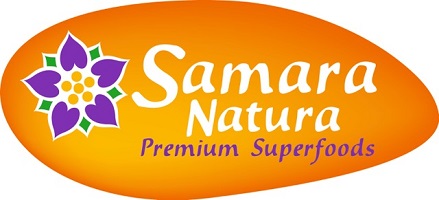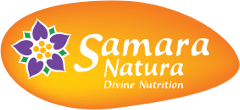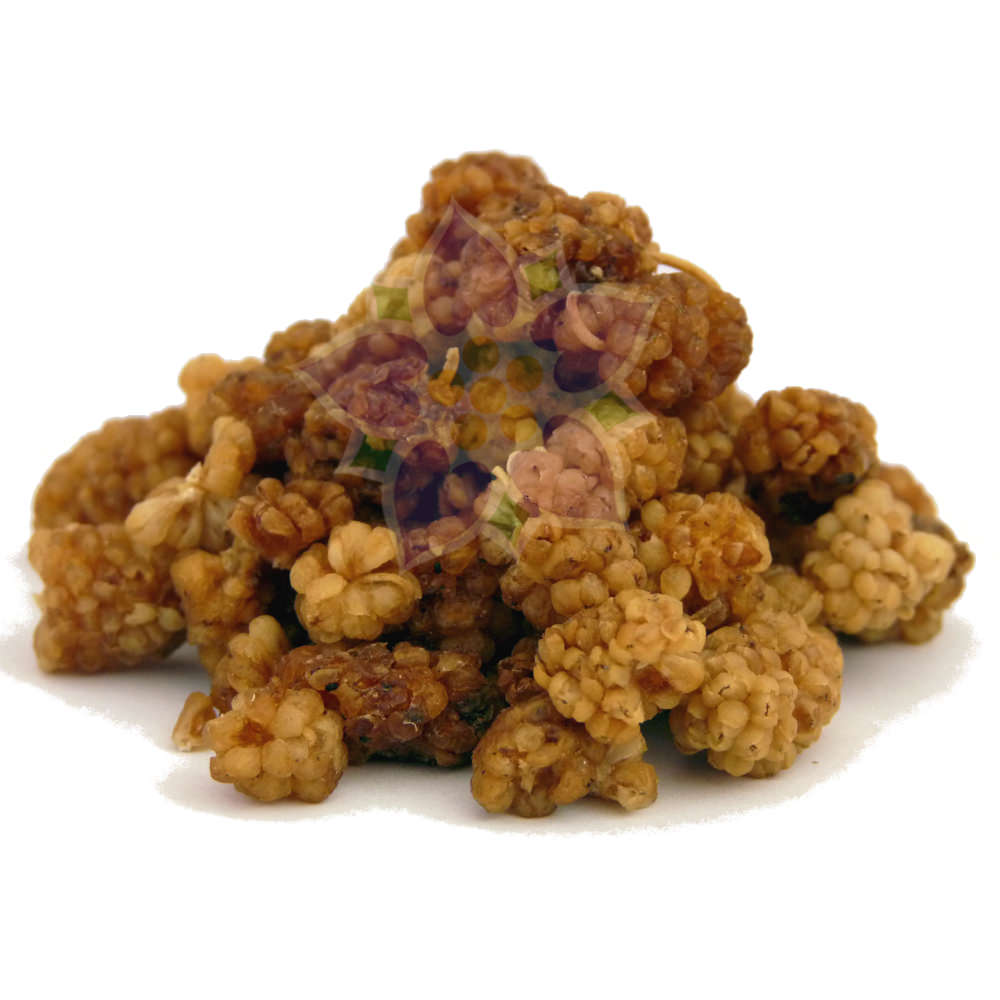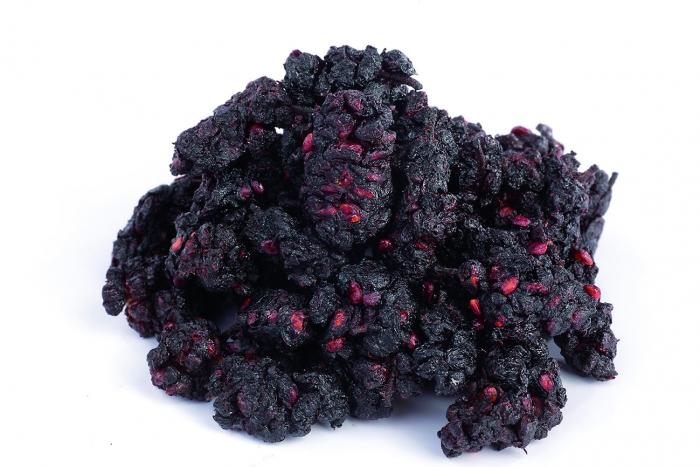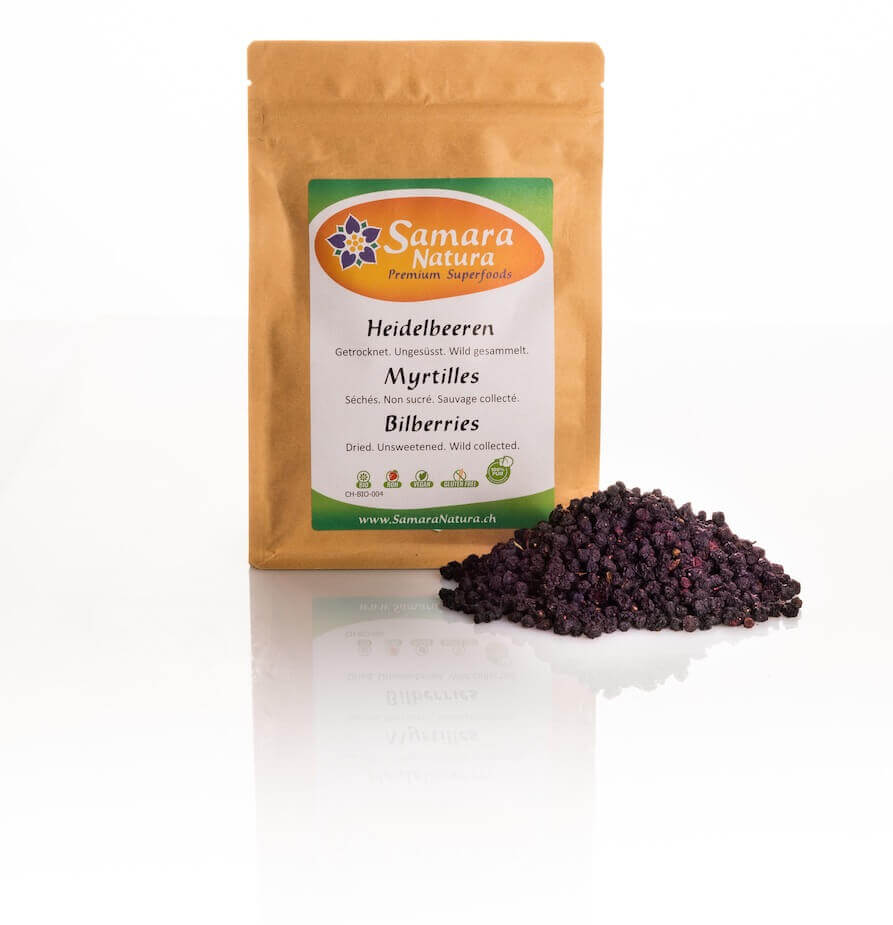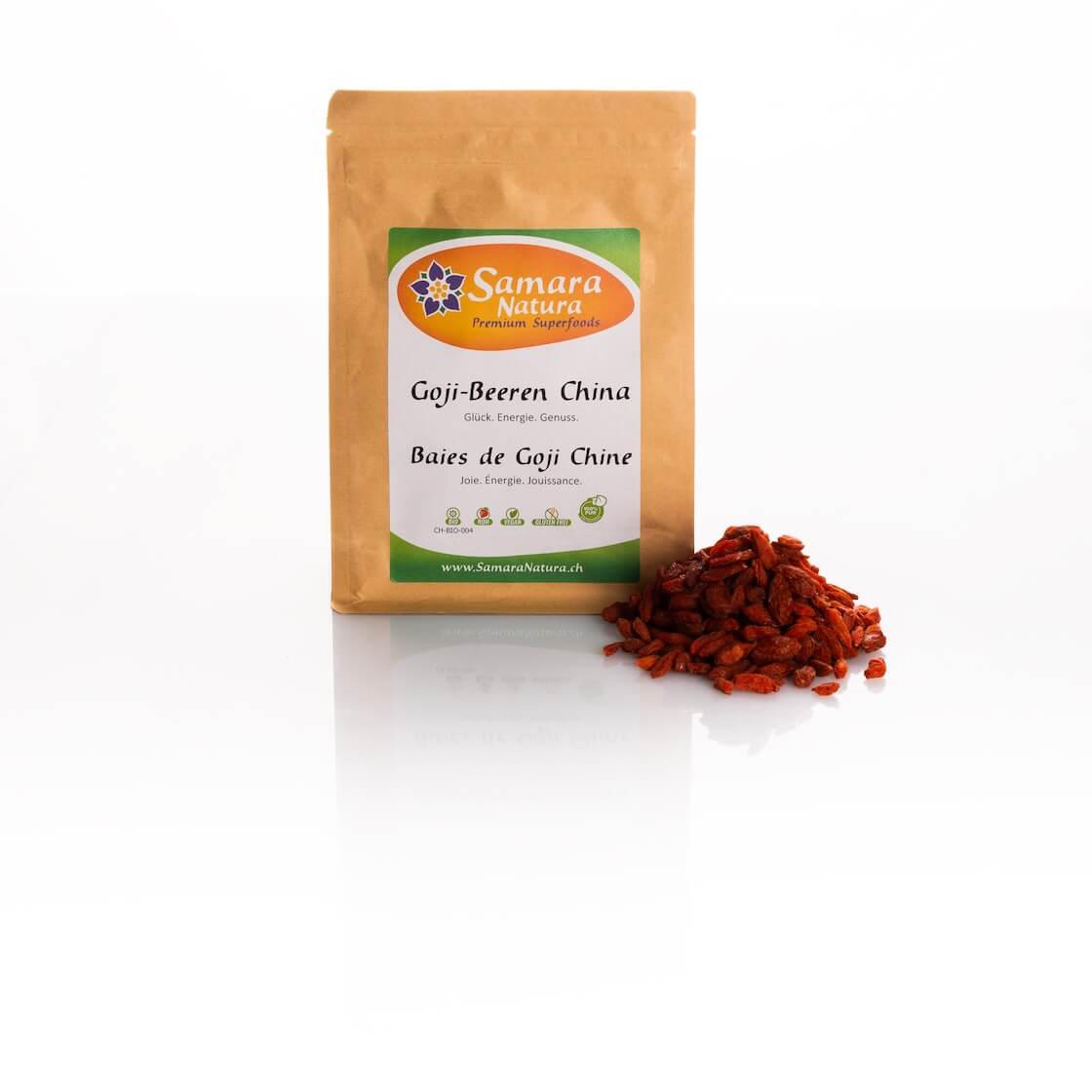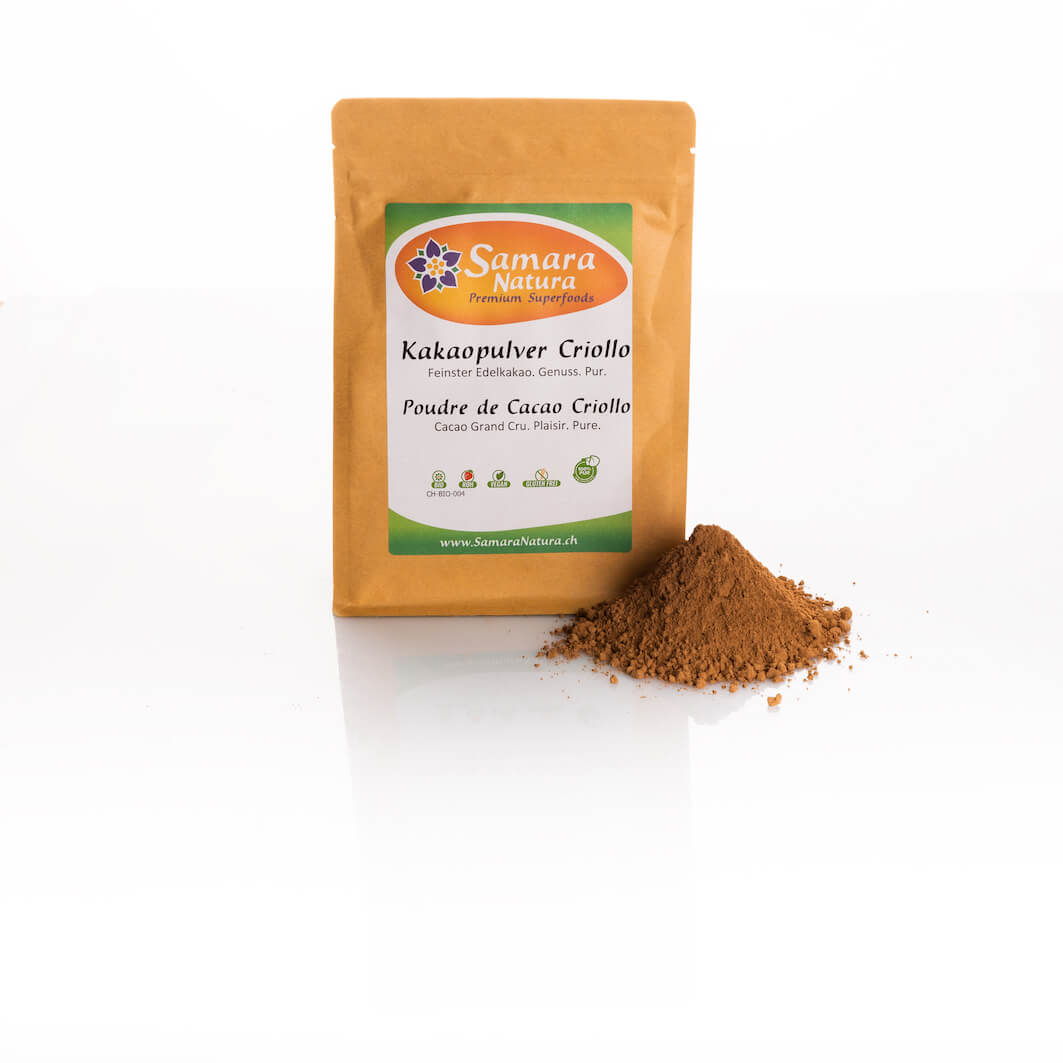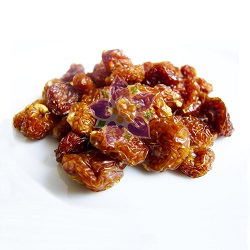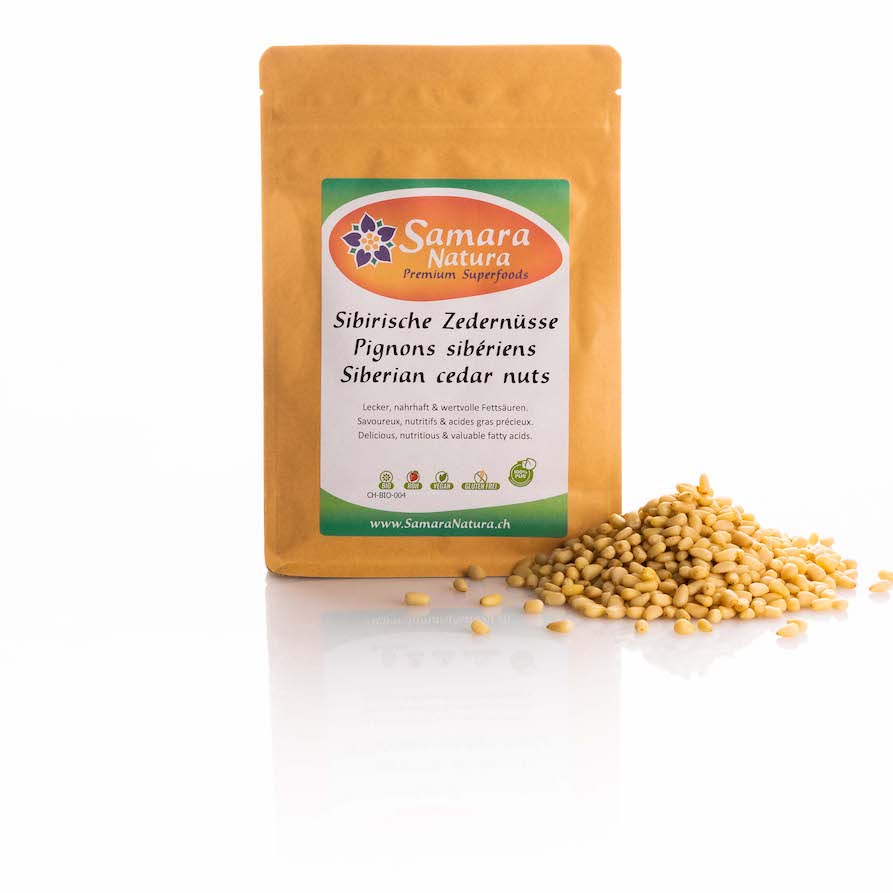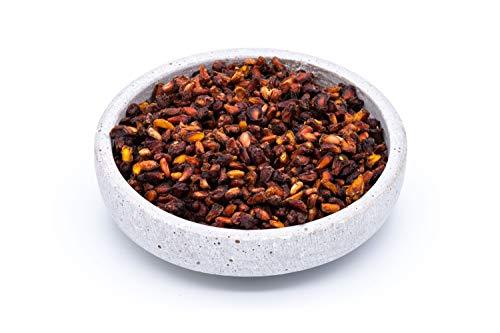| Quantity | Unit price | Base price |
|---|---|---|
| To 2 |
CHF 13.50*
|
CHF 5.40* / 100 Gramm |
| From 3 |
CHF 12.83*
|
CHF 5.13* / 100 Gramm |
Available again soon, see product description for details
Product information "White Mulberries Organic"
White mulberries - traditional oriental delicacy
Our organic white mulberries from Turkey are honey-like sweet, juicy and crunchy at the same time.
Just a handful of the natural sweetness provides an amazing package of vitamins, minerals and proteins. Mulberries are rich in resveratrol, a plant defence substance that has strong antioxidant properties in humans.
A delicious alternative to sultanas, mulberries can be eaten straight from the bag.
Why eat white mulberries?
White mulberries(Morus alba) are rich in vitamins B and C, iron, calcium, magnesium, protein and fibre. Together with goji berries and Inca berries, they are one of the few fruits in the world that are considered a good source of protein.
The most important antioxidant in mulberries is resveratrol, which is a polyphenol and is also found in grapes.
Soft in consistency with a fig-like crunchiness, white mulberries are an excellent natural sweet. An ideal and healthy snack for on the go.
What makes our white mulberries special?
The white mulberries are shaken from the tree and gently dried at low temperatures to optimise their natural sweetness.
Our mulberries are 100% pesticide- and agrochemical-free, raw food quality, preservative-free and sustainably harvested.
How to use white mulberries?
Simply as a snack or in muesli, yoghurt and smoothies. Mulberries are a delicious snack when mixed with nuts and other dried fruit. They go well with homemade chocolates, pastries and jams.
For a nutritious raw muesli, for example, you can mix dried buckwheat sprouts with the mulberries and some fresh fruit and serve with nut milk.
Nutritional values of white mulberries per 100g
Energy value 1435 kJ/339 kcal,
Fat 2.6g, of which saturated fatty acids 1.2g,
Carbohydrates/glucides 93g, of which sugar 42.3g,
Dietary fibre 11g,
protein 10.6g.
All information is subject to the usual fluctuations of natural products.
Login
